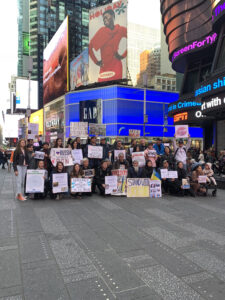A Middle Eastern Marshall Plan

Ramiz Dallah | AP
Rich nations should provide funds to help integrate Syrian refugees into their host countries.

[Originally posted here]
By Paul Mutter
As violence in Iraq wages on, and the Syrian conflict enters into its fifth year, humanitarian and security needs in the Middle East will be even more urgent going into 2015. Winter storm “Huda” bore down hard on the region this past week. With jobs scarce for the displaced, people are being priced out of basic necessities like food, clothing and fuel. The toll the cold inflicts should not be underestimated. Permanent shelter is in limited supply, and only high-quality shelters with sufficient accessories can cope. Space heaters, dry blankets and first aid kits are all increasingly unattainable luxuries. The U.N. says a quarter of a million Syrians in Lebanon do not have sufficient shelter for the cold weather, and thousands lack basic sanitation in Jordan. People can and have died in Lebanon for want of better bedding just this week.
Yet unpaid aid pledges by governments are now adding up to tens of millions of dollars, and only a few countries – those closest to the war zone, those least prepared for these influxes – have been generous in accepting refugees. Although U.N. agencies, nongovernmental organizations and private religious foundations help make up for their governments’ shortfalls, it is not enough. The U.N.’s food program temporarily ran out of money last month, and had this not been redressed as quickly as it was, it would have jeopardized many more lives this winter.
There is little planning for long-term resettlement despite the reality that the influx of refugees has already altered the demographics and economies of host nations. According to the U.N., there are 257 refugees per 1,000 Lebanese citizens, and 114 per 1,000 Jordanians. Turkey, being a much larger country, has a much lower proportion relative to its population, but that does not mean the refugees have not had major impacts there.
In Turkey, shadow economies now thrive over cross-border trade in fuel, weapons, food and people, and corruption is on the rise. Almost two-thirds of Syrian refugees in Jordan live in poverty. Lebanon is facing food production and public health problems. Citizens in these nations are increasingly complaining about job losses in the face of cheaper refugee labor – though at the same time, Syrian capital and skilled workers are pouring into these countries at rates that surpass prewar investments and emigration. Threatened by these changes, both positive and negative, Lebanon, Turkey, Jordan and Iraq are instituting more restrictive entry and employment policies.
All of this is why the Persian Gulf States have been generous in arming the Syrian opposition but reluctant to allow refugees into their own countries. These countries’ leadership wants refugees to leave their politics and ethnicities at the door. It is an impossible demand. So, since it cannot be met, the doors remain shut in all but the most exceptional cases – leaving Lebanon, Turkey, Jordan and Iraq to continue enduring the brunt of these pressures.
If parallels to “Black September” or the “War of the Camps” – which took place between Palestinian refugees displaced by Israel and the refugees’ host country governments during the Cold War – are to be avoided today, the refugees will either have to be repatriated as soon as possible or better integrated into their host countries’ social and political scene. Whether this will be done is another thing. None of the parties to these fights have the strength to achieve decisive military and political victories over their opponents, leading to a stalemate in which the Islamic State group controls about a third of Syria and a similar amount of Iraqi territory. It serves Syrian President Bashar Assad and his allies to prolong the conflict to ensure their survival, and it serves some of his opponents to do so as well in order to try and bleed this camp white.
The alternative is greater integration of the refugees into the host countries. This is an expensive proposition, but one that ought to be afforded as high (or higher) a priority as military expenditures against the Islamic State group. If the Friends of Syria can afford to carry out round-the-clock bombing runs, they can afford a mini-Marshall Plan for the Middle East over the next couple of years. Even the public image good this would bring the coalition would help discredit the Islamic State group and placate refugees’ frustrations.
Funding for stabilization and development needs to be put forward by the U.S., the EU and the wealthier Arab nations to help the host countries. It would be a good use for the money not yet paid out by donors to lay such foundations because the poorer host nations cannot possibly afford these measures on their own.
Even housing subsidies, or just opening more businesses or school doors to refugees, would help greatly. Refugee family units are disintegrating because people cannot work, or have arrived in other countries with only the youngest, oldest and most infirm members of their families. For instance, close to half of all school-age children of Syrian refugees in Jordan are not receiving an education. Domestic violence among refugees is increasing as well. The longer refugee camps are kept operating in parallel to Lebanon, Jordan, Turkey and Iraq’s own infrastructures, the more likely they will evolve into shadow governments that clash with the host countries’ security forces.
Paul Mutter is a graduate student at NYU pursuing an MA in International Affairs. He is a blogger for the Foreign Policy Association, and also writes for War Is Boring, The Arabist and Souciant Magazine.






